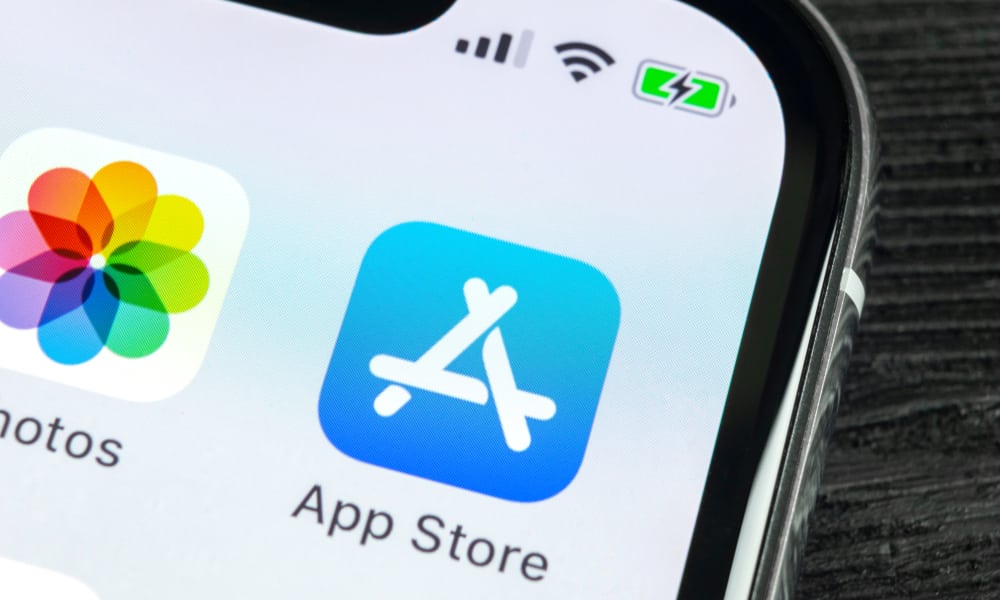Here’s Why Apple’s Own Apps Dominate App Store Searches
 Credit: Bigtunaonline / Shutterstock
Credit: Bigtunaonline / Shutterstock
Toggle Dark Mode
Earlier this summer, Apple came under scrutiny from the Wall Street Journal and the New York Times with suggestions that it was gaming App Store results to favor its own first-party apps in searches.
More specifically, separate analyses by both publications revealed that Apple’s own mobile apps were coming up at the top of App Store searches much more frequently than they should have been, giving Apple an unfair advantage over third-party apps.
Although it was unclear what advantage there would be to Apple doing this for many of its own apps such as Calendar and Mail, the fact that revenue-generating apps such as Apple Music, Books, and Apple News also got top billing raised some suspicions that Apple might be unfairly favoring its own apps in the results.
Apple naturally denied that it was deliberately giving its own apps any special placement over others in the App Store, but the reports clearly prompted the company to take a closer look at what was going on behind the scenes, and it seems that Apple has figured out what was triggering this behavior and is now taking steps to improve it.
Apple Will ‘Handicap’ Its Own Apps
In an interview with the New York Times, top Apple executives Phil Schiller and Eddy Cue explained some of the logic behind Apple’s algorithm and how it was causing these skewed results, defending the behaviour as being correct, but also admitting that despite this working well for the App Store at large, it also had the unintended side-effect of moving Apple’s own apps to the top positions.
For example, the Times discovered in its own earlier analysis that Apple’s Wallet app vaulted to the number one spot on App Store searches for terms like “money,” “credit,” and “debit” only one day after Apple announced the Apple Card on March 25. Prior to that, it had barely ranked for those search terms.
Cue suggested that the problem was likely the result of Apple’s marketing team adding those terms to the underlying description of the app, but insisted that Apple hadn’t otherwise done anything specific to make that happen.
The execs also suggested, however, that some of this may also be the result of the App Store’s behaviour to group apps from the same developer in search results. For example, searching for “office” will return a series of Microsoft apps — Word, Excel, and Powerpoint, for example — because the algorithm naturally recognizes that users are looking for Microsoft Office.
Another factor that gave Apple’s own apps top billing was the result of them being preinstalled on users’ iPhones in the first place, along with the fact that some people use the App Store search engine (which may be tied into the Spotlight search on iPhones as well) to find apps that are already on their iPhones. Then, if they choose to click on that app from the App Store page in order to open it, that ups its popularity to the search algorithm, increasing the likelihood that it will appear at the top in future searches.
When people search “music,” the App Store reminds them that they already have Apple Music installed. Many people then click on the app, the engineers said, adding to its popularity in the eyes of the algorithm.
However, Apple engineers said that they actually began noticing how the search algorithm was”packing results with Apple apps” and claim that they had begun addressing the issue several months ago — prior to the reports from the Journal and the Times. They first started making exceptions for certain searches, but then in July they turned it off for all Apple apps entirely. In essence, they didn’t change the search algorithm, but simply removed Apple’s own apps from being grouped together by the ranking algorithms.
The result was that on July 12, many Apple apps dropped precipitously in the rankings, and this especially affected unrelated apps. For example, a search for “TV” was reduced from showing four Apple apps to displaying only two, and “maps” started displaying only the actual Apple Maps app, and not other loosely related Apple apps.
Working as Designed
Despite these changes, however, it appears that Apple’s own primary apps will continue to get top placement — a search for “music” is still more likely to turn up Apple Music at the top of the list, but since Apple will no longer be “grouping” its own apps in search results, users are unlikely to see less relevant results like iTunes Remote, iMovie, or Clips show up next.
However, Schiller and Cue both make it clear that they don’t see this as a problem with the algorithm itself, or even a mistake on Apple’s part, insisting that the algorithm had been “working properly” and that instead they simply chose to “handicap themselves” in order to help out third-party developers. However, while Cue admitted that Apple makes mistakes all the time, and Schiller added that the company is “happy to admit when we do” he also insisted that “This wasn’t a mistake.”






